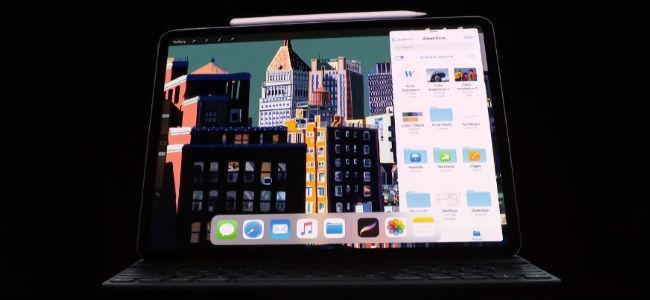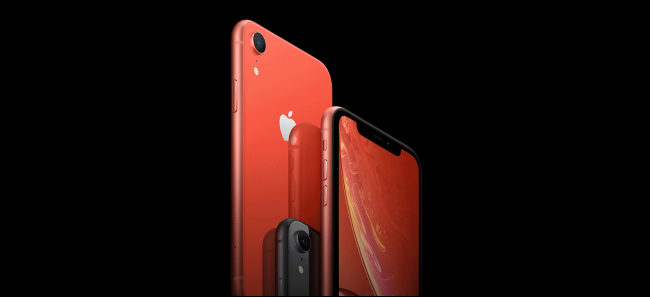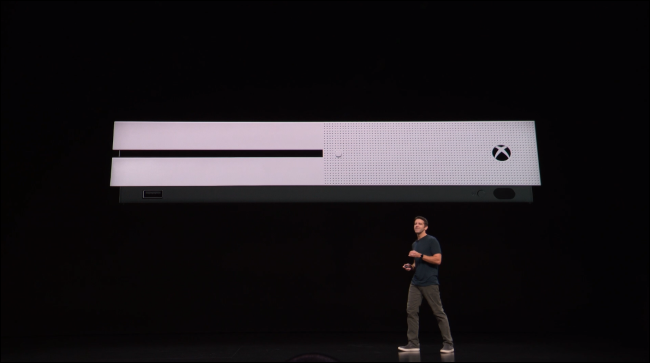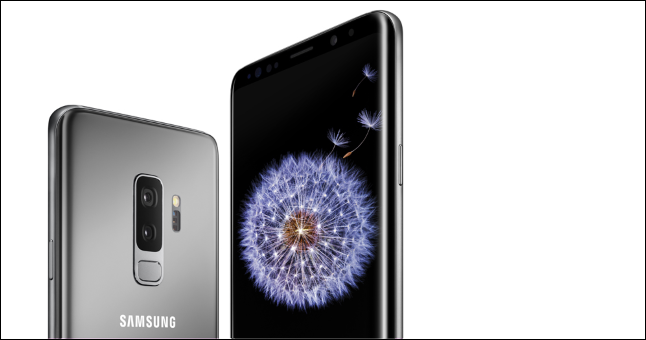Quick Links
Apple says its new iPad Pros are faster than 92% of all laptops, tablets, and convertible PCs sold in the last year. And yes, that includes PCs with Intel Core i7 processors! Mobile CPUs are becoming as fast as desktop PC CPUs, never mind laptop CPUs.
Sure, an iPhone or iPad isn't going to replace your desktop PC any time soon, but that's just because of the software. The hardware is ready. Just think what we could do with better mobile software, or even with a Windows 10 on ARM PC running one of these new chips!
Never Mind iPads---Even Your iPhone is Faster
It's easy for PC users to think of iPads, iPhones, and even Android phones as toys. But, even if you don't like Apple's iOS operating system, Apple's hardware is amazing. Apple designs its own A-series ARM CPUs.
Apple says its new iPad Pros are faster than 92% of all portable PCs thanks to its new A12 X Bionic chip. That's already really impressive, but these are tablets. What's going on with phones will blow your mind, too.
The new iPhones---that is, the iPhone XS, iPhone XS Max, and even the cheaper iPhone XR---all include Apple's new A12 Bionic chip. That little iPhone CPU is a workhorse, too. Here's what Anandtech had to say after running some benchmarks:
What is quite astonishing, is just how close Apple’s A11 and A12 are to current desktop CPUs. I haven’t had the opportunity to run things in a more comparable manner, but... we see that the A12 outperforms a moderately-clocked Skylake CPU in single-threaded performance. Of course there’s compiler considerations and various frequency concerns to take into account, but still we’re now talking about very small margins until Apple’s mobile [system-on-a-chips] outperform the fastest desktop CPUs in terms of [single-thread] performance.
Let's repeat that, for emphasis: A modern iPhone has better single-thread performance than many Intel Skylake CPUs released in 2015. And Apple is improving its chips much faster than Intel is, so Apple is rapidly catching up and looks set to leapfrog Intel.
Geekbench scores tell the same story. Check out the Geekbench results for iPhones and iPads and compare it to the results for desktop PCs. A modern iPhone XS or XR offers a roughly equivalent single-thread score to some lower-end Intel Kaby Lake desktop CPUs released in 2017.
Apple's Chips Are as Fast as a Modern Gaming Console, Too
On mobile platforms, the CPU is part of a system-on-a-chip (SoC) that includes a graphics processor (GPU) as well as a CPU. And the GPUs on these mobile chips are getting pretty impressive, too.
Apple also says its new iPads with the A12 X Bionic chip have Xbox One S-class graphics. That's in a light, portable tablet with a long life.
I have an original Xbox One, which is a big heavy box that needs a lot of fans and must be plugged into the wall with a huge AC adapter brick. That Xbox One is slower than an Xbox One S, which means it's slower than an iPad!
Sure, the Xbox One originally came out in 2013. But it's still a current-generation gaming console.
Imagine what Apple's engineers could do if they put this chip in an Xbox-size box with more power and cooling.
It's Not Just Apple
But let's talk about other manufacturers. Modern Android phones like Google's Pixel 3, Samsung's Galaxy S9, and the OnePlus 6T use Qualcomm's Snapdragon 845 chips.
Android phones are a bit behind, just going by Geekbench scores. Android devices with the Snapdragon 845 offer a single-thread score of about 2400, although Samsung Galaxy variants with Samsung's Exynos 9810 chip are closer to 3300.
Apple has the single-thread performance lead, but those Android devices are similar to an iPhone 6s Plus or iPhone 7. So, perhaps they're a few years behind for single-thread performance, but other companies are getting there, too. And they're catching up faster than Intel is improving its desktop CPUs.
What Does This Mean For the Future of Computing?
Those low-power chips you have in your phone and tablet are on their way to surpassing the higher-power chips in your laptop and desktop. That means serious performance from a phone or tablet. Perhaps the dreams of "convergence"---a smartphone powering your entire PC setup, perhaps with wireless display and peripherals---are closer than we think. It's a shame that Ubuntu Phone and Windows 10 Mobile were too early.
These chips don't have to stay in phones. They can be used in laptops for longer battery life. Microsoft's Windows 10 on ARM project is an acknowledgment that even Windows will have to run on ARM chips. These devices are rather slow now because those Windows 10 on ARM systems don't have fast enough chips. But, once speedy ARM chips get here, these devices will have great performance combined with excellent battery life. You can also buy Chromebooks that use ARM processors.
For Apple---the company that makes the fastest mobile chips---this is a big opportunity. Apple could replace the Intel chips in Macs with its own A-series ARM chips. This has long been rumored, and it makes sense. Those chips are indeed fast enough for it. And they could probably run even faster with more power and better cooling. A report in Bloomberg said Apple planned to use its ARM chips in Macs starting in 2020, and we wouldn't be surprised to see that happen.
The iPad could keep getting more powerful software until it becomes a more capable PC replacement, too. The iPad has a long way to go, but it already has the hardware to do a lot of serious work today. The software just needs to catch up.




